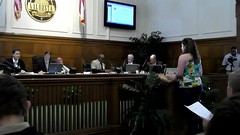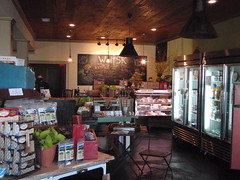“THUMBS DOWN: To area officials who continue to refer to the opponents of the biomass plant as a “fringe” group. Far more citizens are concerned about the plant than officials would like for the public to believe. Thankfully, the city council allowed them to speak at Thursday’s meeting, but the issue is not going away until their health concerns are addressed.”
A year ago the VDT was solidly in the pro biomass camp.
Guess they didn’t like being fed misinformation,
any more than the rest of us did.
 And that was before the VDT said
VLCIA illegally made up a document.
And that was before the VDT said
VLCIA illegally made up a document.
Rumor has it that there’s going to be another demonstration today outside Valdosta City Hall starting at 5PM.
-jsq


 It’s an opportunity for those of us who are not currently
searching for our next meal to help those who need jobs,
and thereby to help ourselves, so they don’t turn to crime.
Like a burned-over longleaf pine, we can come back from this recession
greener than ever, if we choose wisely.
It’s an opportunity for those of us who are not currently
searching for our next meal to help those who need jobs,
and thereby to help ourselves, so they don’t turn to crime.
Like a burned-over longleaf pine, we can come back from this recession
greener than ever, if we choose wisely.




